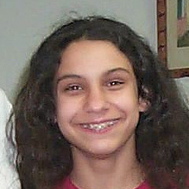SIUC Linguistics Alumni Coordinator
I am asking for help with this job because I am semi-retired, I'm busy, and I don't know how many more TESOL Conventions I will be able to attend. I think it's extremely important, to SIUC, to its graduates, and to the future of Linguistics. I hope somebody will help.
There is a Facebook page which one keeps an eye on. I could be more aggressive about being sure each of its members is an actual graduate, but I consider it good enough to keep it free of spam and keep its messages related to the department. It does not specify that it is for alumni, but the current students have other active pages that they use more regularly, and this one is mostly for alumni.
Every year at the TESOL Convention, we try to have an SIUC gathering. Sometimes it is poorly planned, nonexistent, or poorly attended. SIUC Linguistics has a huge community, important in the TESOL world, and if those who attend the conference know about the gathering, and are able, they will usually drop by and say hello. Most are successful ESL/EFL professionals spread around the world. One year the President of TESOL was a Saluki and he stopped by. Many of our grads were at SIUC at a different time than I was (I was at SIUC 1994-2012) but I have come to meet some who were there before me, and some who have arrived since. Needless to say this would be true for any alumni coordinator. You would get to know them and learn what era they occupied.
To me, these grads are SIUC's greatest resource, yet SIUC barely knows about it. If the Alumni Office ever tried to reach me or find out who or where these folks were, I never knew about it. It could be that many of them have joined the Alumni Association separately and want to maintain relations with their specific department separately, but I tend to believe that, since there is a price to maintaining a relationship with the Alumni Office, they prefer to stick with the department itself.
Our shining moment came a couple of years back when the department was in danger of being extinguished entirely, and the Chair asked if alumni could simply report where they were, what they were doing, and how they were using their MA degree. I used the list of e-mail addresses that has been passed down to me, and simply asked everyone. The response was significant, and I forwarded it all to the Chair. People higher up got a sense of who our graduates were and what they were doing. To make a long story short, the department was saved (there were other reasons, too, I'm sure), and I felt vindicated.
I maintain that e-mail list, but I'd like to hand it over to someone. There's an unspoken rule: I use it only to tell about the convention reunion, in other words sparingly, and since it doesn't overpower anyone's inbox, people stay connected to us. We don't sell their e-mail addresses and they remain loyal Salukis.
Keep in mind one other thing. Folks who worked at Nakajo for many years have no alumni department, that I know of, so we are it for them as well. They come to the TESOL reunion, and find each other, but rarely do many of them know many of us very well, unless they actually worked in both locations. I don't know about you, but the people I've taught with over the years are in many ways my closest friends; I don't want to lose touch with the lifeline that helps me find them, or at least find out what may have happened to them. Sometimes, if someone is looking for a certain colleague from their era, and this isn't my era, I can't help them right away, or use my meager record-keeping system (I have only e-mail addresses, besides their personal accounts) to find someone who
can help them. But as long as we keep some form of reunion / gathering / accounting system alive, there is hope. And that, I think, is important, and I don't want to let that go, and let that fall silently into the depths of my un-dealt-with e-mail. Thank you for reading this far; contact me if you're still interested!
Labels: cesl, personal, siuc, tesol
TESOL presentation
I will be presenting at the TESOL International 2015 Electronic Village Classics in Toronto.
Presentation Title: For Better or Worse: Grammar technology and the language learner
Presentation
Description: This presentation shows the technology that students are
using to learn and write, so that practitioners can adjust accordingly
Day and Time: Friday, March 27 2:30-3:20 PM
Computer Station: MAC 4
All invited!
Labels: google translate, grammar, internet, language, learning theory, personal, tesol, writing
GT app
So today in class we were talking about technological innovations in our field, and I happened to mention that in language learning, the big one was the new Google Translate app, which you could hold up to anyone who is speaking any language and it would translate it into any other language. Now by "any" I mean the top thirteen, and right away my colleague who was really interested in Mongolian was asking whether it had Mongolian, but of course the GT guys have barely started with Mongolian, let alone Kazakh, Hopi, Tongan, or Jamaican Creole.
After a few minutes a woman admitted that she had it, and she even showed her phone. Sure enough, there was an app on it and I spoke "Hello how are you" into it, and it translated it into Arabic. I took her word for it that it was reasonably good Arabic, not perfect, she said. By now students from the next class were entering and we were under pressure to leave; all this happened when class was essentially over. But when one student said, "of course it'll do 'How are you,' but what about anything else?"....so I tried "Open your book to page 143 and write ten sentences" in a kind of reflex ESL-teacher mode. She again translated it into Arabic. It worked, she said. Not perfect, but it worked. An Iranian student vowed that she would download it immediately and see how it worked for her.
I didn't catch the
name of the app. I also saw the list of available languages, which included Moldavian (???)...I have a fellow teacher from
Moldova who insisted that wasn't her...but I reserved judgment on that because I'm well aware there
could be a Moldavian and it
could be among the top thirteen. Some people are obviously left out; in my class, I have Sri Lankans, Bengalis, a Brazilian Portuguese speaker (who was gone)...a few more. More on this later. This is what I want to know.
1. Obviously it's ok if you hold the phone right up to someone's mouth and they speak loudly and clearly right into it. But at what point does this fall apart? The back of a small class where people are whispering? A crowded cafe? Where is it most useful and least useful?
2. Obviously the skill involved in using it is a kind of grammar de-scrambler...it's possible that the computer is quite effective at figuring out the
words it has just heard. Also it reportedly can figure out
which language it's listening to, though I saw her specify, Eng. to Arabic. So - can you set it on
figure out the language? Does it make mistakes with the words? If so which ones?
How much descrambling do you have to do?
3. How
fun is it to use? Do you enjoy it? Or do you have to hide it from the average teacher?
Labels: google translate, grammar, ttu
ESL/EFL Writing teachers, Help!
Dear ESL/EFL Writing teacher: For years I have been studying
the influences of technology on ESL writers’ grammar and expression. The
influences are not all bad; for example, the computer’s constant reminder that
subjects and verbs must be matched has virtually eliminated a wide range of the
most common, simple matching errors that we used to see regularly. But
computers, specifically electronic dictionaries, programs such as Google
Translate, and Word grammar-check and other (sometimes free) grammar software
have altered students’ learning curves as well as their production. I am most
interested in the ways their learning and writing have been hampered, because
it is most useful for teachers to be aware of that, in order to teach more
effectively. But anything you can point out, good or bad, about computers’
influences on students’ learning and writing will be helpful to me.
If you have read enough and don’t wish to say
anything, thanks anyway for your time! If you do the survey, it will take about
half an hour, and I will need it in two weeks, roughly at the end of February;
thanks in advance! I will send you a free book upon your completion; be patient
if you live abroad. You can see the books at my press website
(tlevspress.blogspot.com); there is poetry and short stories (ESL eventually,
but you may have to wait). This is obviously self-serving in terms of getting
my own books out there, but I can’t think of anyone I’d rather give it away to,
than my fellow teachers here and abroad! Feel free to forward this message to
other ESL/EFL teachers you know who might be interested. More information about
what I’m doing (and the TESOL presentation it is for) is on my blog: tomleveretts.blogspot.com.
Thanks again! –Tom Leverett
Note: This was pasted, verbatim, on Facebook. All ESL/EFL Writing teachers are welcome to participate, though. My fear is that as I become a little removed from the ESL/EFL writing trenches, I lose touch with what people are experiencing. I need to know what you are seeing!
My TESOL presentation is For Better or Worse: Grammar technology and the ESL/EFL Writer; it's part of the Internet Fair Classics. Stay posted for details on time and place; hope to see you there! Its website is
here, though I've had trouble updating it, due to changes in uploading technology.
To participate in the survey, write me at thomas.leverett@ttu.edu. I will send the survey by word file (it is about 2 1/2 pages). Thanks in advance!
ITA story
In our business we are the gateway; if people are good and capable teachers, at least as far as their speaking goes, they go on and teach at the university, and if their speaking, or some aspects of their teaching, falls short, they stay with us until everything improves. We are always afraid of disasters further up the chain. If there is a teacher at the university who can't be understood by students, that's indirectly our fault.
Yesterday afternoon at about 3:30, there was an explosion in the Chemistry building. Today, I decided to see what I could find out about it, and I checked my roll until I found the one student who was in the Chemistry department. After class, I asked her if she knew anything about the explosion.
In a nutshell she said this. There were two students under the direction of one TA. The TA was in her lab; she knew the TA (both she and the TA were Chinese). One of the students poured an acid in with a base, in a toxic waste container, and it blew up. People ended up in the hospital and came back with bandages covering glass wounds. Nobody was killed, fortunately. Also, it was the second explosion at the Chemistry building, although I know nothing about the first (I remember it vaguely, and I think it was worse, but I didn't do research on it, and have no idea what caused it, or how much worse).
Then I asked her about the TA. She said, you passed this very TA in the summer workshop, whereas you flunked me, so here I am, in your class. Now this floored me. I did not remember flunking this particular student, although it could be possible; in the summer workshop there are many students, and we often grade them for very short presentations and hardly see them the rest of the month. Same with the name she gave me; it sounded familiar, but I didn't recognize it as someone I knew well.
But the question remains. I'm a father, so I know how you can have native English, and still give someone instruction, and still have them do something stupid, or dangerous, or both, for no better reason than that they weren't thinking. Lots of times, it has nothing to do with language at all. But if you're a good teacher, and presumably Chemistry students want to be chemists, at least on some level, and if your communication is clear, and if your instruction is clear, generally they don't dump acid onto a base, even in a waste container. So, to what degree could this have been caused by language, or communication skills, or some other kind of failure?
Good question.
Labels: ita's, ttu






















































